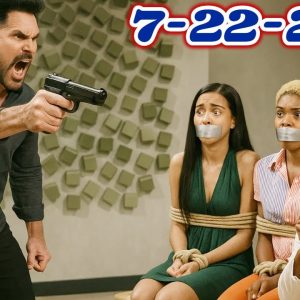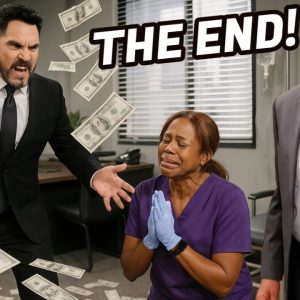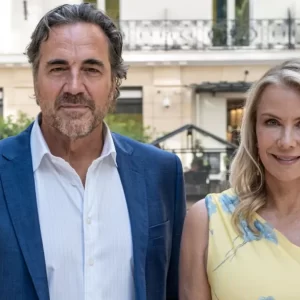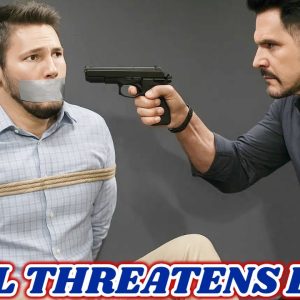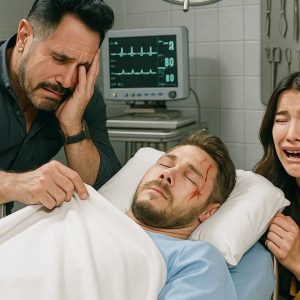In Fathers at War, a stirring drama of heart and conflict, two men stand at the crossroads of parenthood, driven by devotion but divided by philosophy. This emotional powerhouse of a film unfolds the parallel stories of Deacon Sharp and Bill Spencer, both fathers whose love for their children fuels choices that shape fates—and fracture families.
Deacon, once a man consumed by poor decisions, has clawed his way back from the abyss, determined to be the father Hope Logan deserves. In the wake of Hope’s breakup with Carter Walton, Deacon steps forward—not as a judge, but as a guide. He sees an opportunity to encourage her toward emotional stability, and he believes Liam Spencer is the key. To Deacon, Liam embodies reliability, compassion, and moral integrity. His advice to Hope comes not from pressure, but from a place of hope: hope that she can reclaim happiness through a rekindled connection with someone he trusts.
But Deacon’s journey is not about control—it’s about conversation. He listens, he suggests, and when Hope gently but firmly refuses, he doesn’t fight back. She is her own person now, and her rejection of Liam is not a denial of her father, but an affirmation of herself. Deacon, though disappointed, respects her choice. This is love in its purest form: unconditional, patient, and ever-evolving.
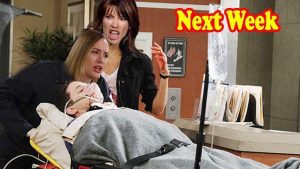
Across town, a very different storm brews. Bill Spencer is a titan—of business, of ego, and of willpower. When he learns that Luna Nozawa, a woman with a troubled history he once gave a second chance, is getting close to his youngest son Will, something inside Bill snaps. To him, Luna is not just a woman with a complicated past—she’s a potential threat to his son’s future. Bill doesn’t suggest, he commands. He issues ultimatums cloaked as protection and threatens Luna with prison if she dares defy him.
And when his warning doesn’t achieve the desired effect, he follows through. Luna is sent away, not because of what she’s done—but because of what Bill fears she might do. In the name of fatherhood, he exercises a form of control so severe it becomes indistinguishable from vengeance.
Through these parallel arcs, Fathers at War paints a gripping picture of love in conflict with power. Deacon’s gentle, communicative love clashes against Bill’s rigid, forceful protection. Their differing approaches to parenthood beg a larger question—how far should a father go to shield his children? Can love be love when it disregards the will of those it claims to protect?
The emotional climax hits when Luna, wronged and re-imprisoned, begins plotting a vengeful return. Meanwhile, Deacon watches from afar as Hope continues to grow in strength and self-awareness. These two daughters—one supported, one suppressed—represent the true consequences of their fathers’ choices.
In the end, Fathers at War is not about who was right, but about how love—misguided or not—can become both salvation and destruction. The line between guidance and control has never been so tragically thin.
